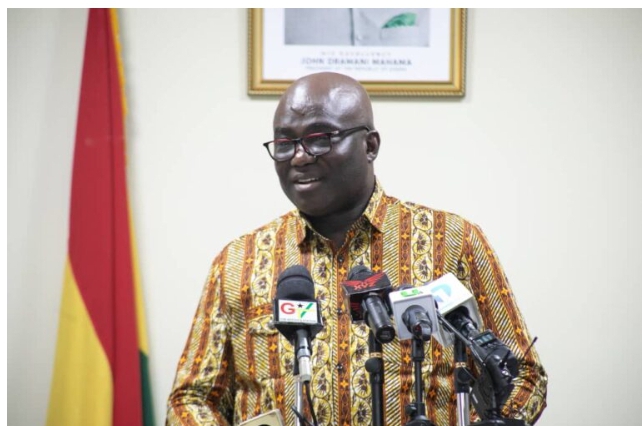Feed Ghana Programme Drives Agricultural Transformation in Ghana
Feed Ghana Programme Drives Agricultural Transformation in Ghana

Ghana’s Minister of Food and Agriculture, Eric Opoku, has announced key developments under the Feed Ghana Programme, a flagship initiative aimed at transforming the country’s agricultural sector. The programme has achieved significant milestones in the past nine months, including the construction of 10 new small dams, rehabilitation of 8 existing irrigation dams, and drilling of 250 solar-powered boreholes for farming communities and second-cycle schools across the northern regions, Bono, and Ahafo regions.
The rehabilitation of several irrigation schemes is ongoing, including Vea Irrigation Scheme in the Bolgatanga and Bongo districts of Upper East Region (850 hectares), Weta Irrigation Scheme in Ketu-North Municipal of the Volta Region (880 hectares), Tanoso Irrigation Scheme in Techiman Municipal of the Bono East Region (100 hectares), Kpong Irrigation Scheme in Shai Osudoku and Lower Manya districts in the Greater Accra and Eastern regions (930 hectares), Ashaiman Irrigation Scheme in Greater Accra (200 hectares), and Aveyime Irrigation Scheme in the Volta Region (245 hectares).
Additionally, 25 solar-powered boreholes have been completed, with the remaining 10 expected to be finished in the first quarter of 2026. The government has also initiated the construction of new inland valleys for rice production, covering 1,200 hectares of land, including Anunuso Inland Valley in Anunuso, Brofoyedu, Nkwawkwanua, and Awaham communities in the Ashanti Region (175 hectares), Atonsu Inland Valley in Atonsu and Abramaso communities in Ashanti Region (150 hectares), Kawampe Inland Valley in Kwawampe, Tanfulto, Kaaka, Tadefufuo, Tahiru Akura, Chiranda, Atta Akura, and Abrewanko communities in the Bono East Region (647 hectares), Odaho & Odamu Inland Valleys in Yaw Nkrumah and Donuaso communities in the Ashanti Region (114 hectares), and Waamu-Kumi Inland Valley in Waamu Kumi and Offinho communities in the Ashanti Region (114 hectares).
The Government of Ghana and the Korea Rural Cooperation are also developing irrigation infrastructure on 100 hectares of land to support rice seed production. The government aims to produce 10,000 tons of high-quality rice seed by 2027, moving Ghana closer to rice seed independence.
Food inflation has decreased significantly from 61% in January 2023 to 9.5% in October 2025. The Feed Ghana Programme is expected to boost agricultural production, create employment opportunities, and enhance food security in Ghana.





